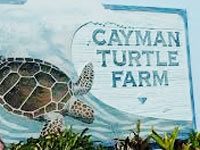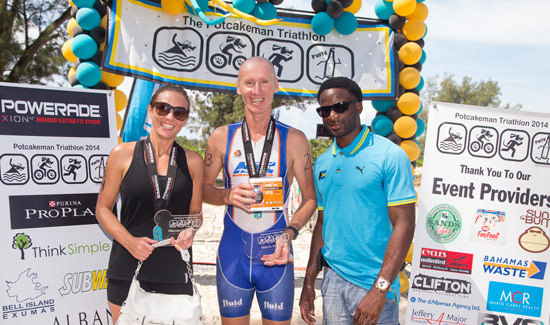 George Town, Cayman Islands — New information revealed as part of an investigation conducted by the World Society for the Protection of Animals (WSPA) into the Cayman Turtle Farm (CTF) shows disturbing evidence of animal cruelty and conservation failures, amid fresh revelations of massive debts at the government-funded facility.
George Town, Cayman Islands — New information revealed as part of an investigation conducted by the World Society for the Protection of Animals (WSPA) into the Cayman Turtle Farm (CTF) shows disturbing evidence of animal cruelty and conservation failures, amid fresh revelations of massive debts at the government-funded facility.
Currently housing 7,000 endangered sea turtles in what are described as “appalling inadequate conditions,” CTF claims it does so in order to satisfy local demand for turtle meat and to drive conservation.
Although the farm says it has released 31,000 turtles since it opened in the late 1960s, currently only 113 of 200 turtles currently nesting on Cayman beaches have CTF tags. Sea turtles are migratory animals travelling up to 5,000km (3,100 miles) between nest sites. As such, unlike many other wild species they don’t stay put and so cannot be directly attributed to being the responsibility of a given government. The result is that all governments in the Caribbean share the responsibility of ensuring that sea turtles are protected.
WSPA’s evidence shows that, as well as being inherently cruel, the farm’s commercial sea turtle farming operation is also a poor and outdated business model, in terms of profit and both its animal husbandry and conservation practices.
The heavily indebted farm has been making an average loss of well over US$11 million a year over the past five years, only surviving so far thanks to extensive government subsidies.
WSPA Wildlife Campaign Leader Dr Neil D’Cruze said: “It’s clear from looking at the Cayman Turtle Farm’s books that it has never been an economic asset to the island and is better described as a taxpayer burden. We haven’t seen any farm practices that can justify keeping thousands of endangered animals in cramped and filthy conditions.”
Figures obtained by WSPA under the Freedom of Information (FOI) Law also show that the Cayman Turtle Farm has released on average just 27 green sea turtles per year over the past five years, while accruing an average yearly spend of CI$14,894,020 (US$17,872,824) over the same time period.
Additionally, demand for turtle meat on the island has plummeted by half in the last five years and is almost non-existent among those tourists visiting the island.
D’Cruze said: “You could argue that, over the past five years, every year, the cost of producing a turtle for meat cost the Caymanian tax payer around CI$551,630 (US$661,956). Clearly, the farm is haemorrhaging money year on year. The CTF currently has a dubious conservation impact and their input into addressing the actual causes of sea turtle decline is unclear. For the amount of money spent by the farm, there should be better results.”
WSPA’s video footage and photographs from the farm show thousands of sea turtles being kept in dirty, crammed touch tanks in the public tourist areas of the farm.
These naturally wide ranging animals are solitary creatures, but life in the CTF is a world away from how sea turtles live in the wild. Swimming in water filled with their own waste, the turtles fight for food – biting each other and even resorting to cannibalism due to the extreme stress of such close captivity. WSPA investigators even witnessed turtles with missing flippers, chewed off by tank-mates.
The worst suffering and health problems faced by the turtles are away from tourist eyes in the restricted access production area, where turtles suffering from disease and birth defects are reared for meat.
The foul conditions are not only affecting the resident turtles – humans could also be at risk.
As part of its attraction the farm encourages visitors to touch and pick up the sea turtles.
WSPA tested and found traces of Salmonella, E. Coli and Vibrio vulnificus in the turtle touch tank waters – meaning that visitors who touch the turtles are at risk of contracting diseases ranging from gastroenteritis to pneumonia and cholera. According to a 2012 poll conducted by Greenberg Quinlan Rosner, 69% of North American cruise ship passengers polled who visited the Cayman Turtle Farm in 2009 were unaware of these health risks.
The FOI request also shows that the number of green sea turtles released by the Cayman Turtle Farm is falling. It is unclear how many turtles returning to the Caymanian waters the farm can directly take credit for and releasing diseased turtles could be a ticking time bomb for wild turtle populations, as many turtles on the farm suffer diseases not seen in natural environments.
WSPA believes that there are other more animal friendly and sustainable options available to protect green sea turtles and is calling on the Cayman Turtle Farm to permanently end sea turtle farming.
The animal welfare charity presented its findings to the farm’s management team earlier this year, proposing a plan for the farm to transition its business to a sea turtle rehabilitation and research center, which could increase tourism footfall and turnover.
The world’s oldest sea turtle research and conservation group, the Sea Turtle Conservancy said: “Our longstanding knowledge of conditions at the Cayman Island Turtle Farm, combined with recent evidence provided by WSPA, raises significant concerns and uncertainty surrounding the welfare of the turtles and the farms efforts to conserve wild populations. Without clear proof that the farm’s conservation activities benefit wild turtle populations, CTF is sending out a dangerously misleading message. We strongly urge them to work with WSPA to resolve these concerns.”
The Cayman Turtle Farm has so far failed to respond to WSPA’s suggestions and offers of assistance to address the economic, conservation and welfare issues which it has identified.
A statement of support from the YWF-KIDO Foundation in Grenada agrees with the WSPA’s document ‘Cayman Turtle Farm: a case for change’ and fully supports initiatives geared to reconvert the turtle farm into a rehabilitation facility promoting sea turtle conservation. “We can only foresee problems for such a farm whose misleading advertising is providing the tourists with erroneous information.”
D’Cruze added: “We know it’s possible to deliver good animal welfare and good conservation, serve as an ethical tourist attraction, without wasting tax payers’ money – just look at how well the Blue Iguana Project is running. We want to help the farm change for the better, but its unwillingness to meet us halfway is posing a great challenge. There’s a reason that CTF is the last turtle farm in the world – it’s an outdated model which no longer does justice to the Cayman Island’s turtle heritage.
WSPA wants to work with the farm to turn the facility into a place that Caymanians can be proud of. Science and society moves on and WSPA would like to help CTF make a positive change, for the turtles, for tourism and for the island.”
Caribbean News Now!


